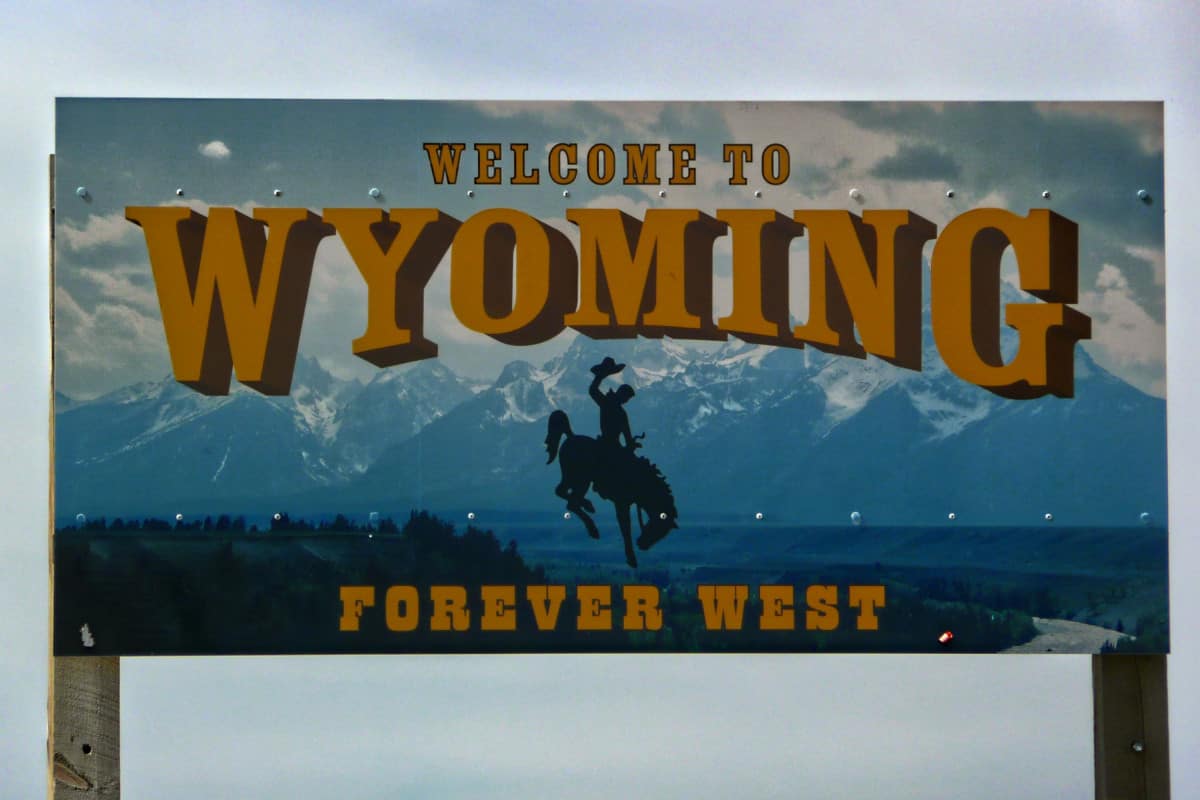How to Change Your Name in Wyoming

Whether you're changing your name in Wyoming through marriage, divorce, or a court order, the process might seem daunting, but it’s simpler than you'd expect.
This guide will detail the specific steps and required documents for changing your name in Wyoming, offering a clear path to tackle the process like a pro.
Changing your name through marriage
You must first apply for a marriage license at any county clerk's office in the state. You and your partner can apply together or one of you can apply on behalf of the other.
The application fee is $30 statewide.
Provide the clerk with your names, social security numbers, addresses, and ages. You must bring a valid photo ID, such as a driver's license, passport, or military ID.
If one partner can't apply in person, the other must bring a competent witness to verify the absent partner's information and confirm that there’s no impediment to the marriage.
You have one year from the date the marriage license is issued to get married. If it expires, you'll need to reapply and repay the fee.
You need at least two witnesses at your ceremony to observe you and your partner declare your marriage in front of the officiant.
Once this is done, the person solemnizing your marriage will hand you your completed certificate of marriage attached to the marriage license.
The certificate documents the time and place the wedding ceremony was conducted. The two witnesses must also sign your certificate with their names, ages, and addresses.
Note that the certificate of marriage given to you by the person solemnizing your marriage is not an official certified copy. This document is intended for your personal records.
To obtain a certified copy—necessary for name change purposes—you must first return the marriage license to the county clerk for recording.
After it’s recorded, you can request an official certified copy from the clerk’s office, provided you didn’t request one when applying for your marriage license.
Changing your name after the ceremony
In the spectrum of name changes, Wyoming is on the more straightforward end, especially for marriage-related changes, compared to states with more elaborate options.
Due to the lack of specific statutory language, your choices are generally limited to taking your spouse's name or hyphenating.
The marriage certificate is what you and your partner must use to change your names after marriage. It serves as proof of marriage and verification of a legal name change event.
The marriage license application will have a spot for your maiden name and current name, but not your new name. This isn't an omission that'll prevent your future name change.
When it comes time to update federal and state agencies, they'll derive your new name from you and your spouse's current names, as shown on your marriage certificate.
Typically, couples will change their last names, middle names, or both.
Last names
You may decide to assume your partner's name, or vice versa. You may also decide to hyphenate your last names together in whatever order you choose.
Middle names
You can adopt your old last name as your new middle name to keep a part of your heritage. You might also decide to hyphenate your middle name with your old last name if you want to change your last name in marriage, too.
Changing your name through the courts
You will have to first petition the district court in the county you live in for a name change. You must first fill out an affidavit that sets forth your full legal name, your new name, a concise statement disclosing the reason why you wish to change your name, your current address, and the length of time you have been a resident of the county. You must have lived within the county for at least two years prior to this name change request.
Both adults and minors may change their name provided they follow the stipulations listed above. In the case of a minor name change, both parents must be informed of the name change and must agree to the name change.
If one parent does not agree to the name change, then a hearing date will be set to hear the non-filing parent's reason as to why they do not agree to the change.
If the court is satisfied that you are not changing your name for any fraudulent or harmful purposes, they will then set a court hearing date and time for you to attend.
The filing fee will cost anywhere between $70 and $100.
Publication of notice
You must publish a notice of your intent to change your name in a local newspaper. This requirement may be waivered if you are a victim of domestic abuse or you otherwise believe that your safety would be put at-risk with this publication.
In order to have this waivered, you must file a separate motion alongside your petition, and you may have to provide proof during your hearing of said domestic abuse or that your safety would be in danger.
The hearing
Unless someone objects to your name change, the judge will usually sign the order after hearing your own testimony of why you want to change your name.
Use this order to change your name on all important documents thereafter (e.g., social security card, driver's license, passport, etc).
Changing your name during a divorce hearing
If either you, your partner, or the both of you wish to change your names after a divorce, you may request the judge to restore you the right to do so during the hearing itself. You may only change your name back to a birth name or any other formerly-held name at this time.
The judge will then add this request to the final decree, which you can use to change your name on all important documents (e.g., social security card, driver's license, and so forth).